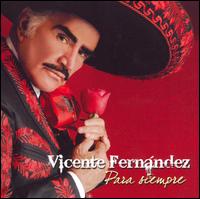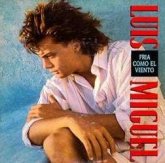
Máximo Antonio del Rosario, commonly known as Toño Rosario, is a Grammy Award nominee musician, best known for his role of bandleader of Merengue music act Los Hermanos Rosario. In 1990, he started his successful solo career receiving gold and platinum certifications.

Marco Antonio Solís Sosa is a Mexican musician, singer-songwriter, and record producer. Born and raised in Ario de Rosales, Michoacán, Solís began his musical career at the age of six, performing with his brother Joel Solís as Los Hermanitos Solís. In 1975, he co-founded Los Bukis, of which he was the lead vocalist, songwriter and guitarist. The band split up after nearly two decades of success, with Solís pursuing a solo career. Solís released his debut solo album, En Pleno Vuelo, in 1996 by Fonovisa Records.

Todo a Su Tiempo is the second studio album by American recording artist Marc Anthony, released by RMM Records on May 31, 1995. The album was produced by Sergio George, who was also involved with production of Anthony's debut studio album, Otra Nota. The album comprises five new compositions, three of which were written by Omar Alfanno, and four cover versions. Eight singles were released from the album, all but one of which topped the Billboard Tropical Songs chart.

Para Siempre is the 79th studio album released by Mexican singer Vicente Fernández on September 18, 2007, by Sony BMG Norte. Written and produced by Joan Sebastian, and co-produced by Jesús Rincón, the album was met with instant success. It has sold two million units worldwide, and is one of the best-selling albums by Fernández. It spawned four hit singles: "Estos Celos", "La Derrota", "Un Millón de Primaveras", and the title track, the latter of which was used as the main theme to the telenovela Fuego En La Sangre, which brought the wider exposure to the album and helped it to stay on charts for over two years. It was named the best-selling Regional Mexican Album of the decade by Billboard magazine.
The Billboard Top Latin albums chart, published in Billboard magazine, is a record chart that features Latin music sales information. This data is compiled by Nielsen SoundScan from a sample that includes music stores, music departments at electronics and department stores, Internet sales and verifiable sales from concert venues in the United States.

"Estos Celos" is a song written and produced by Mexican singer-songwriter Joan Sebastian and performed by Mexican recording artist Vicente Fernández. It was released as the lead single from Fernández's 79th studio album Para Siempre (2007).
Regional Mexican Albums is a genre-specific record chart published weekly by Billboard magazine in the United States. The chart was established in June 1985 and originally listed the top twenty-five best-selling albums of mariachi, tejano, norteño, and grupero, all subgenres of regional Mexican music. The genre is considered by musicologists as "the biggest-selling Latin music genre in the United States", and represented the fastest-growing Latin genre in the United States after tejano music entered the mainstream market during its 1990s golden age.

"Corazón Partío" is a song written and performed by Spanish singer-songwriter Alejandro Sanz from his 1997 album Más. Released as a single, the flamenco-influenced upbeat song was his international breakthrough and entered several Billboard charts in the United States, including Hot Latin Tracks and Hot Dance Singles Sales. It became one of Sanz's signature songs. A remix of the song, released in 1998, reached number one in Spain.

"Fría Como el Viento" is a ballad written, produced and arranged by Juan Carlos Calderón and performed by Mexican singer Luis Miguel. It was released as the first single from the Grammy-nominated studio album Busca una Mujer (1988). The song became the third number-one single for the singer in the Billboard Hot Latin Tracks chart after "Ahora Te Puedes Marchar" in 1987 and "La Incondicional", the preceding single.

Dejarte de Amar is the second studio album recorded by Mexican pop rock band Camila, It was released by Sony Music Latin on February 9, 2010 Produced by band leader Mario Domm and mostly written by Domm and Mónica Velez, the album became a success in the United States and Mexico. The album was certified Disco Platino in the United States by the RIAA and 4× Platinum in Mexico by AMPROFON. It was recorded in Mexico at Mamita Studio with theme about love, loneliness and lies. The album spawned three singles: "Mientes", "Aléjate de Mi", and "Bésame", all of which reached number-one on the Billboard Latin Pop Airplay chart. The album received generally positive reviews for its arrangements and compositions.

Independiente is the thirteenth Spanish-language studio album by Guatemalan singer-songwriter Ricardo Arjona, released on 23 September 2011. Recorded in the United States and Mexico, it was produced by Arjona with Dan Warner, Carlos Cabral "Junior", Lee Levin and Puerto Rican singer-songwriter Tommy Torres. The album—the first independent release by Arjona after he was signed by Sony Music in 1993 and Warner Music in 2008—was issued by his own label, Metamorfosis.

El Ejemplo is a studio album by Regional Mexican band Los Tigres del Norte. It was released by Fonovisa Records on May 2, 1995, and includes fourteen tracks written by Teodoro Bello and Enrique Valencia, which span song styles such as ballads, boleros, corridos, cumbias and rancheras.









